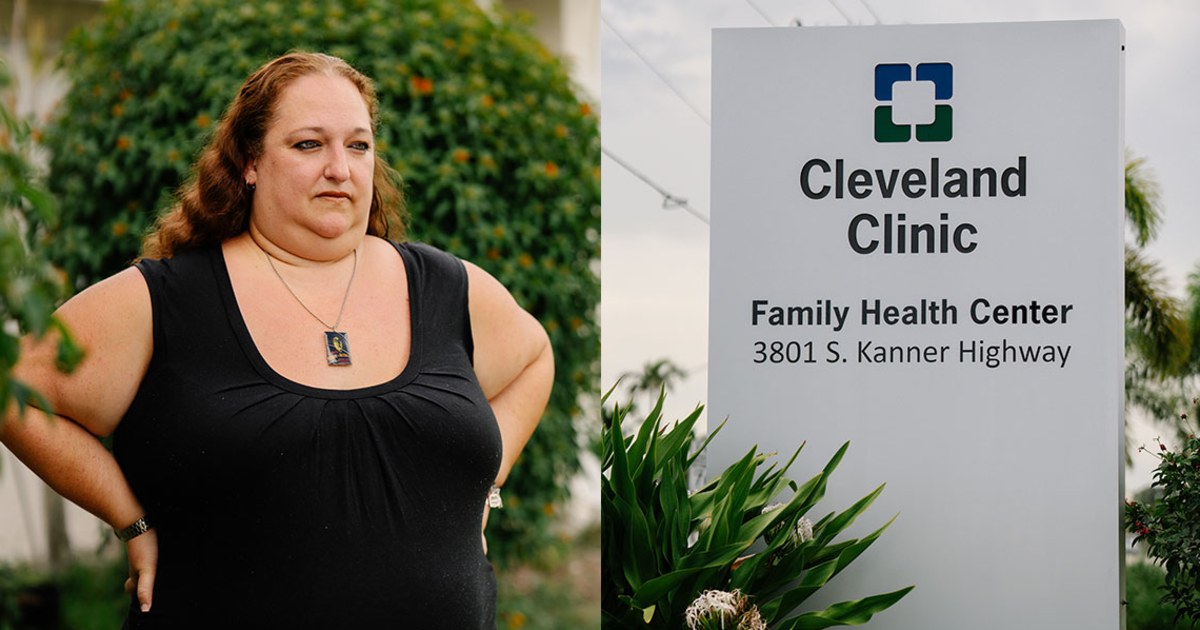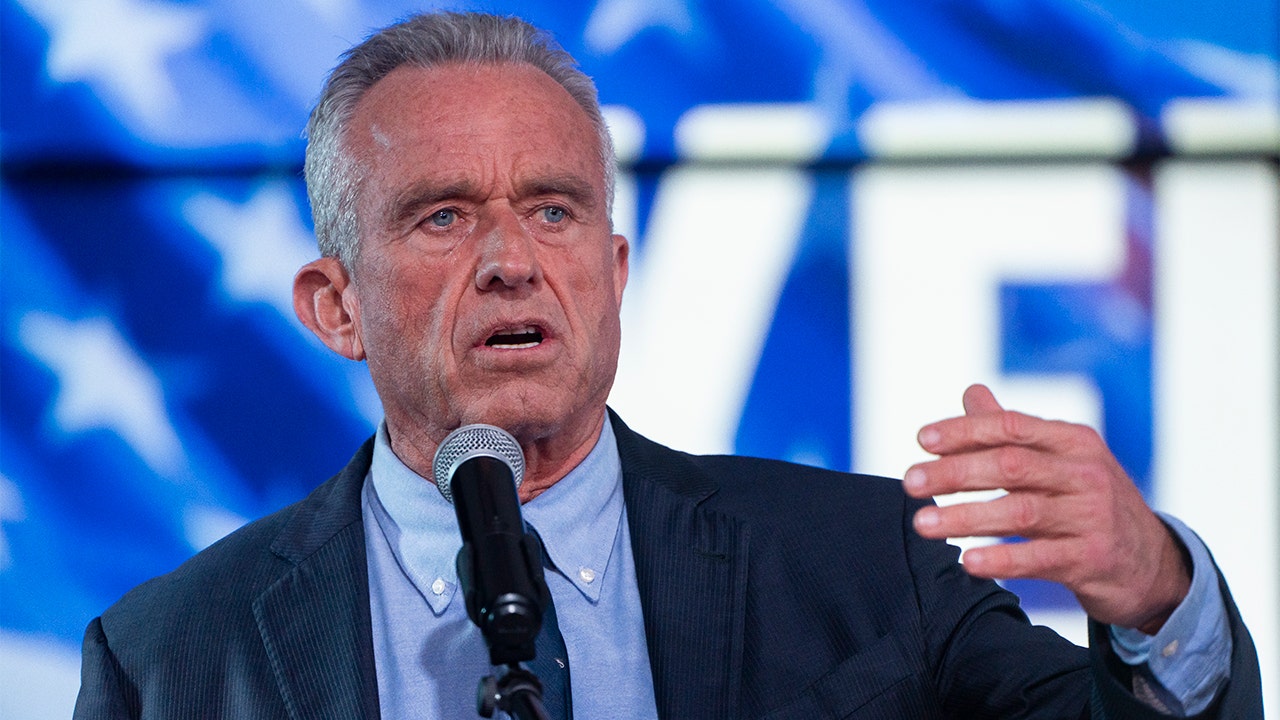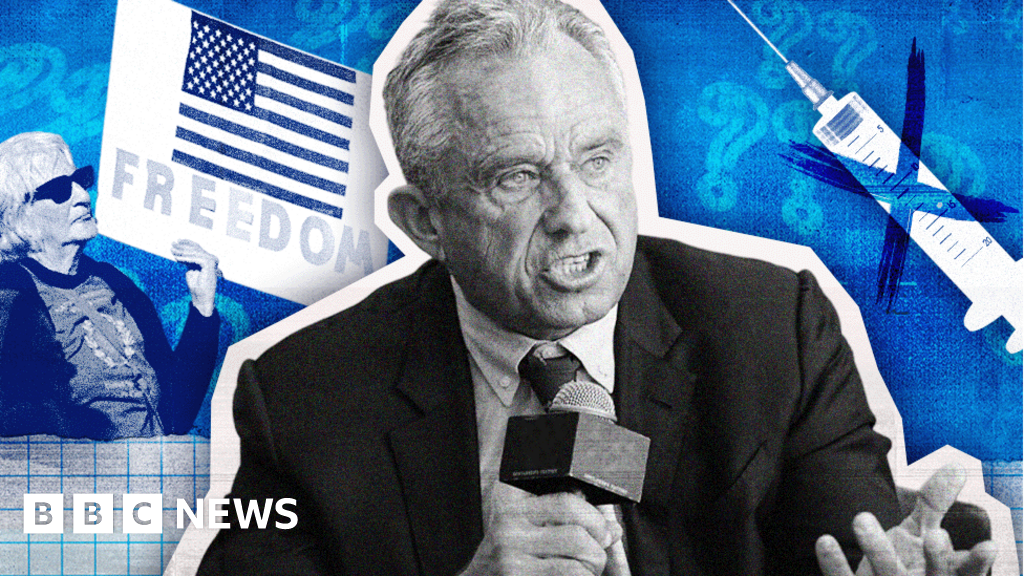AMA Urges HHS Secretary to Retain USPSTF Members

Introduction
The American Medical Association (AMA) has expressed concerns over the possible dismissal of members of the U.S. Preventive Services Task Force (USPSTF) by Health and Human Services (HHS) Secretary, Robert F. Kennedy Jr. This independent group of experts is dedicated to advancing primary care and their removal could have serious consequences for the medical community and the public at large.
Key Details
The USPSTF is responsible for making evidence-based recommendations for preventive services such as screenings, counseling, and preventive medications. These recommendations are widely used by medical professionals to guide their practice and by insurance companies to determine coverage. The AMA believes that removing members of this panel could undermine their credibility and jeopardize the effectiveness of their recommendations.
Furthermore, the USPSTF plays a crucial role in addressing healthcare disparities and promoting equity in access to care. With the current focus on racial and social justice, it is imperative that this panel remains intact and continues to provide unbiased and inclusive recommendations.
Impact
The potential dismissal of USPSTF members has raised concerns among the medical community and the public. The AMA has urged the HHS Secretary to prioritize the importance of primary care and the critical role of the USPSTF in promoting it. The removal of experts from this panel could have far-reaching consequences and jeopardize the health and well
About the People Mentioned
Robert F. Kennedy Jr.
Robert F. Kennedy Jr. is an American politician, environmental lawyer, and author, born on January 17, 1954, in Washington, D.C. He is the third of eleven children of Robert F. Kennedy, the U.S. Attorney General, and Ethel Skakel Kennedy. His family's political legacy includes his uncle, President John F. Kennedy. Kennedy's early life was marked by personal struggles, including drug addiction, which led to his arrest for heroin possession in 1983. However, he later redirected his life towards environmental advocacy and public service. Kennedy graduated from Harvard University in 1976 with a degree in American history and literature and later earned a law degree from the University of Virginia in 1981. He began his career as an assistant district attorney in Manhattan but soon shifted his focus to environmental law. In 1987, he received a master's degree in environmental law from Pace University, where he taught environmental law from 1986 to 2018 and co-founded the Environmental Litigation Clinic. Notably, Kennedy is the founder of the Waterkeeper Alliance, a global clean water advocacy group, and Children's Health Defense, which focuses on childhood chronic diseases and environmental exposures. He has been recognized for his environmental activism, including being named TIME Magazine's "Hero for the Planet" for his efforts in restoring the Hudson River. Kennedy has also been involved in high-profile legal cases against companies like DuPont and Monsanto. In recent years, he has been a vocal figure in vaccine skepticism and public health controversies. In the 2024 U.S. presidential election, Kennedy initially ran as an independent candidate before endorsing Donald Trump. Currently, his involvement in public life includes controversial stances on health and environmental issues. Despite these controversies, his work in environmental law and advocacy has had significant impacts on public health and environmental protection.
About the Organizations Mentioned
American Medical Association
The **American Medical Association (AMA)**, founded in 1847 by Nathan Smith Davis in Philadelphia, is the largest and only national association in the U.S. representing over 190 state and specialty medical societies with a membership of approximately 271,660 as of 2022[1][6][7]. Headquartered in Chicago, Illinois, the AMA's mission is to promote the science and art of medicine, advocate for physicians, and improve public health. The AMA's early history was marked by efforts to regulate medical practice and protect the public. It campaigned against quack remedies and patent medicines, influencing legislation such as the Drug Importation Act of 1848 and the Pure Food and Drug Act of 1906[1]. The organization also pioneered medical record standardization and vaccination mandates, including compulsory smallpox vaccination laws at the turn of the 20th century[1]. It launched influential medical publications, notably the *Journal of the American Medical Association* (JAMA) in 1883, which remains a leading medical journal today[1]. The AMA played a significant role in shaping medical education, supporting reforms inspired by the 1910 Flexner Report, which emphasized rigorous academic standards, full-time faculty, and integration of research and clinical practice—principles that transformed U.S. medical training and hospital systems[4]. Despite its foundational role, the AMA's history includes controversy, particularly regarding racial exclusion policies in the late 19th and early 20th centuries that prompted the establishment of the National Medical Association as an alternative for Black physicians[3]. Today, the AMA continues to be a powerful advocate for physicians and healthcare policy, offering essential resources such as continuing medical education (CME), practice management tools, and a comprehensive residency and fellowship database (FREIDA)[6][7]. It is deeply involved in addressing current healthcare challenges, including physician advocacy, public health initiatives, and technological advancements in medicine. Notably, the AMA’s origins trace back to
U.S. Preventive Services Task Force
The **U.S. Preventive Services Task Force (USPSTF)** is an independent, volunteer panel of 16 national experts in preventive medicine and primary care. Established in 1984, the Task Force is dedicated to improving the health of Americans by making evidence-based recommendations on effective preventive services. These recommendations cover screenings, behavioral counseling, and preventive medications for over 80 health conditions and diseases across the lifespan[1][3]. **History and Mission:** The USPSTF was created to guide healthcare providers and patients in making informed decisions about preventive care. It operates under a rigorous, multistep process that includes public and expert input to ensure scientific integrity[1]. The Task Force's mission aligns with broader health initiatives, such as the Affordable Care Act (ACA), which mandates insurance coverage for services recommended by the USPSTF[3]. **Key Achievements:** - **Recommendations Impact:** The USPSTF's recommendations have significantly improved preventive care access, with around 100 million privately insured Americans accessing services without out-of-pocket costs thanks to the ACA[3]. - **Health Equity Focus:** The Task Force is evolving its methods to address health equity, focusing on conditions that disproportionately affect certain populations[4]. **Current Status:** The USPSTF continues to update its recommendations to reflect new evidence and expand its portfolio to address emerging health issues. It collaborates with organizations like the American Medical Association (AMA) to disseminate its findings and support implementation by healthcare providers[3][5]. **Notable Aspects:** - **Independence and Expertise:** Members are chosen through an open nomination process and serve without substantial conflicts of interest[3]. - **Evidence-Based Approach:** Recommendations are based on systematic reviews of evidence, ensuring that they are grounded in the latest scientific research[1][4].
Health and Human Services
The U.S. Department of Health and Human Services (HHS) is a pivotal federal agency dedicated to enhancing the health and well-being of Americans. Established in 1953, HHS has evolved significantly over the years, playing a crucial role in public health, medical research, and human services. **Mission and Responsibilities:** HHS administers a wide range of programs, including health insurance coverage for over 170 million Americans through Medicare, Medicaid, and the Affordable Care Act. It also supports community health centers, provides medical care to American Indians and Alaska Natives, and addresses specific health needs such as HIV/AIDS and mental health[5]. The department is involved in life-saving research and works closely with other federal departments, state governments, and the private sector to achieve its goals[4]. **History and Achievements:** Historically, HHS has been instrumental in addressing major public health challenges, such as disease outbreaks and substance abuse. It has also been at the forefront of medical research, particularly through the National Institutes of Health (NIH). **Current Status:** In 2025, HHS embarked on a significant reorganization aimed at enhancing efficiency and reducing redundancies. This involves merging several agencies into new entities, such as the Administration for a Healthy America, and consolidating divisions from 28 to 15[2][3]. The restructuring also includes workforce reductions, with a reported decrease of 10,000 employees[6]. **Notable Aspects:** HHS's FY2025 budget request is $1.802 trillion, with a focus on critical programs like Medicare and Medicaid[10]. The department is also working to protect taxpayer dollars through oversight and enforcement efforts[7]. Its reorganization is expected to save taxpayers $1.8 billion annually[8]. Overall, HHS remains a vital component of the U.S. healthcare system, driving innovation and access to healthcare services.















